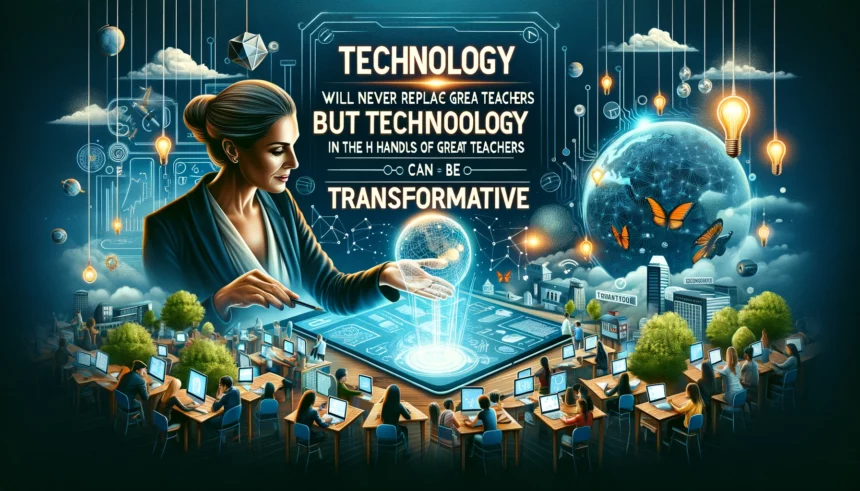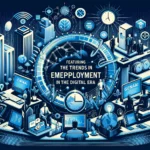Listen to the article now:
In an era where digital transformation is at the forefront of educational evolution, the role of technology in enriching the learning experience cannot be overstated. Yet, amidst this digital revolution, one truth remains unaltered: technology will never replace great teachers. However, when wielded by such educators, technology transforms into an unparalleled force, capable of reshaping the educational landscape and fostering a more inclusive, interactive, and immersive learning environment.
The Massachusetts Institute of Technology (MIT), a beacon of innovation and academic excellence, exemplifies the potential of technology to democratize education. Through initiatives under MIT Open Learning, including OpenCourseWare and MITx, MIT has opened its rich curriculum to the global community, transcending geographical, economic, and social barriers. These programs are not just platforms for online learning; they are gateways to opportunities, especially for under-resourced and vulnerable communities such as refugees and migrants. By combining online courses, virtual communities, remote apprenticeships, and independent project opportunities with on-site support hubs, Organizations like ReACT addresses the diverse needs of learners facing challenging circumstances, offering them a lifeline to learning and employment opportunities.
The revolution in education is not confined to accessibility. The advent of educational technology, or EdTech, has paved the way for personalized learning experiences that cater to the individual needs and learning styles of students. Augmented reality (AR) and virtual reality (VR) are at the vanguard of these innovations, providing immersive experiences that enhance student engagement and facilitate a deeper understanding of complex subjects. These technologies, along with other digital tools, are redefining the boundaries of what is possible in education, enabling collaboration, communication, and interaction that were once beyond our reach.
To harness the full potential of digital education technologies, it is imperative to build digital capacity across all levels of the education system. This includes not only educators and institution leaders but also students, parents, and administrators. Public authorities play a crucial role in supporting education institutions to select the appropriate digital tools that align with their unique needs, facilitating interactions with innovative EdTech solutions, and empowering leadership teams to cultivate a culture of digital education within their schools and higher education institutions. Moreover, strengthening capacity among local authorities and within the wider education ecosystem is essential for the successful implementation of digital education policies.
At the heart of this transformative journey are the educators. Supporting teachers, promoting peer learning, and offering continuous professional development opportunities are paramount to ensuring that digital education technologies are leveraged to advance quality and equity in education. Great teachers, equipped with the right digital tools and resources, are the architects of future generations, capable of inspiring, guiding, and nurturing the minds that will shape tomorrow.
In conclusion, while technology itself is not a panacea for the challenges faced by the education sector, it is an invaluable ally in the hands of those who have the passion, creativity, and dedication to use it wisely. Great teachers, empowered by technology, can indeed be transformative, breaking down walls, opening minds, and paving the way for a future where education is a right, not a privilege.
















